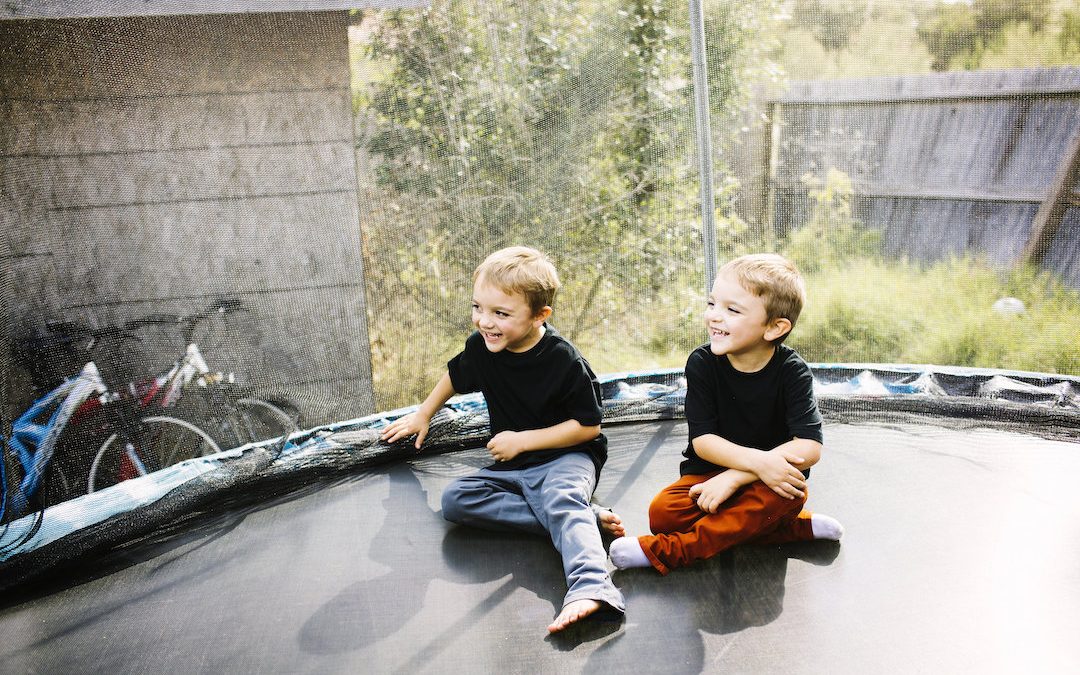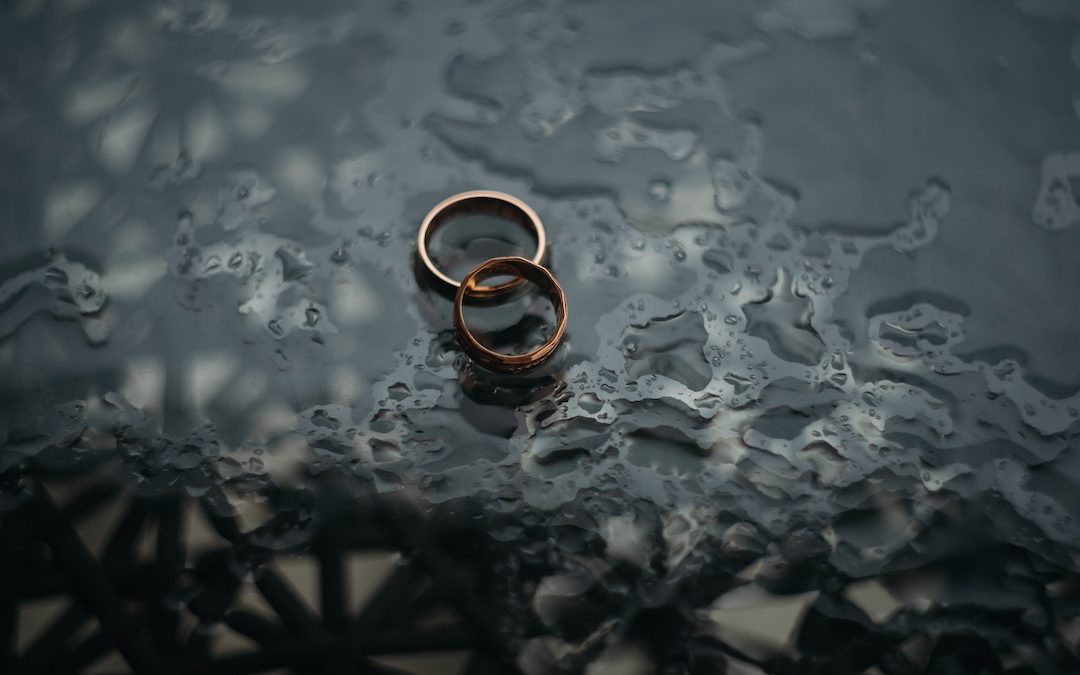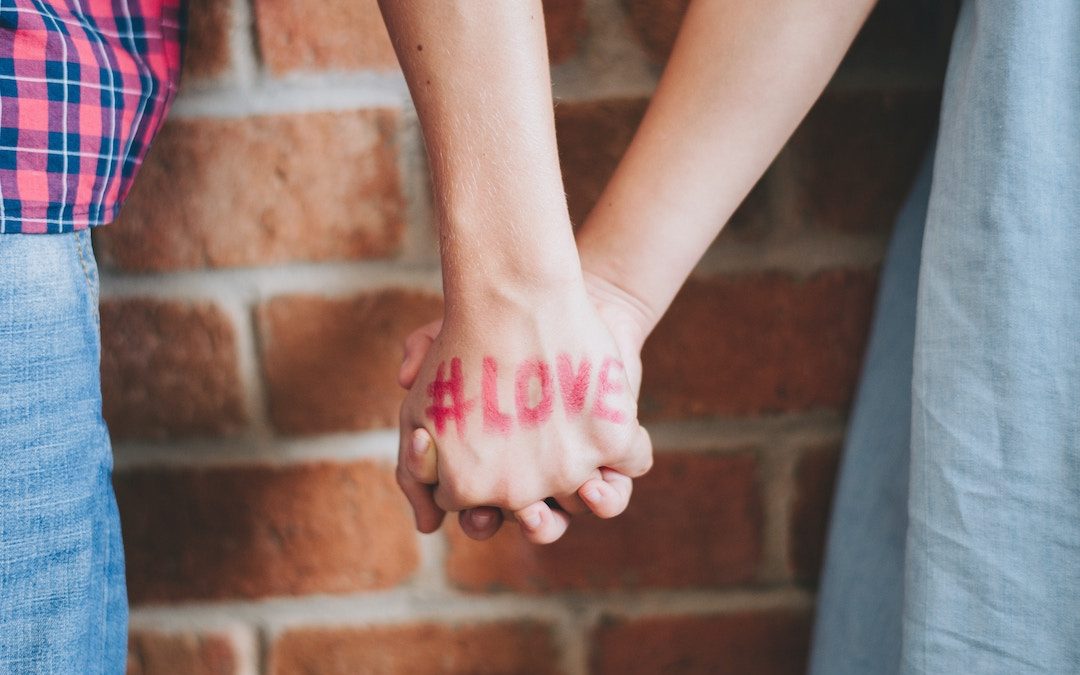
by Rachel Toalson | Wing Chair Musings
He said, “For someone who knows so clearly what you want, it’s annoying to me—someone who doesn’t have as clear of an idea—that you have a hard time asking for it.’
Maybe I’m too careful. Maybe there are times I need to step out of my accommodating, forgiving nature and assert myself.
“What’s the worst that can happen?” he says.
I’ve never liked answering that question.
•
Being the owner of an overactive imagination, there are plenty of worst things that can happen. They all come creeping in at the slightest invitation—like the question, “What’s the worst that can happen?”
I don’t want to look any one of them in the eye, lest I lose my nerve.
•
I’ve typed the email a dozen times, and it still doesn’t feel right. Have I really asked for what I want, or is it just another soft, kind, accommodating note that doesn’t really say much?
I send it off to a writer friend.
She sends it right back with confirmation: It’s just another soft, kind, accommodating note that doesn’t really say much.
•
My sons are young, and my husband and I have tried to raise them in an environment that values good communication skills. “Use your words” is something we say often when they feel upset or angry or sad. They are learning in ways their father and I—a generation that was taught to hide more than it revealed, to suck it up, get over it, life’s got a lot of hard knocks, kid, take what’s handed out without complaining—never did.
Maybe in their future, they will be able to use their words to ask for what they want.
Maybe they will be better than I have been.
•
I’m standing at my computer again. I sort through the questions: What do I want? What do I expect? What is the problem that keeps me from getting what I want or expect?
It all makes sense in my head, but when I get ready to write it down, my fingers feel stiff and uncooperative.
But I flex them, and the words, clunky and patchy at first, spill, stain, solidify.
•
We ask for what we want, because if we don’t, the person on the other side of our asking won’t know what we want. We ask to clarify, to make aware, to say that my needs and goals and desires are important, too, and we should work together to make sure we’re both happy and reaching our full potential and doing what must be done.
We ask because we are important enough, too, to have our needs and goals and desires met.
•
I’m a woman. I’ve been told, in one way or another, my whole life, that I shouldn’t have needs or goals or desires. I’ve been tricked into believing, by immersion in a patriarchal society and faith or simply by an encounter with another individual, that my needs are not as important as others’ needs. I’ve been shamed for my aspirations, my expectations, my dreams.
It’s not an easy legacy to discard.
•
I send the email this time. Who knows if it will make a difference or if anything will change, but at least I know I’ve tried. At least I know that the next time I must ask for what I need I will be marginally better at it. At least I know I have said what needs saying, bared a small piece of myself, moved toward becoming something more than a passive spectator to my life and career.
And the whisper grows, if only by a hair: I matter, too.
(Photo by Dan Gold on Unsplash)

by Rachel Toalson | Poetry
It bobs on water,
far beyond the realm
of imagination and yet
we see it when our eyes
flutter closed.
This ship.
It is well traveled,
well worn, perhaps,
having been tossed
amidst the stormy waters.
It is strong and quick,
slicing through calm,
carrying the hope of
every man who has
looked on it from a distance.
There they stand,
on a crowded shore,
and this ship, with its
knobby masts and
its pitching deck and
its ghost crew worn out
from the imaginary journey,
creeps closer and yet
not close enough to know
that the promises standing on deck
are nothing more than mist.
Perhaps it will get better,
perhaps it will come easier,
perhaps there are riches at the
end of the rainbow after all,
but this is not a ship
that will ever come in
and moving toward its sails
will not change its trajectory.
And so, what this ship tells us,
what it is speaking on the wind
that smacks its canvas across wood,
is do for yourselves
what a ship could never
do for you.
This is an excerpt from Textbook of an Ordinary Life: poems. For more of Rachel’s poems, visit her Reader Library page, where you can get a few volumes for free.
(Photo by Vidar Nordli-Mathisen on Unsplash)

by Rachel Toalson | Crash Test Parents
You’d think that, at a certain point, when you’ve been a parent for a certain number of years or you’re the parent of a certain number of kids, there would come a time when you actually knew what you were doing. But we had our sixth baby a little more than a year ago, and while some things are easier this time around, I can still say, with certain certainty, that even on the sixth kid, I have no idea what I’m doing.
See, the thing about parenting is that a whole lot of it comes down to the children. There’s not one single thing that’s going to work for every parent and every child, because there’s no one archetype of “child” to point the way. I know. Our home is like a controlled experiment, a laboratory for testing out parenting practices. There’s the strong-willed nine-year-old, who will challenge every single thing out of each parent’s mouth, because he always sees things differently; there is the seven-year-old, who can’t possibly stay out of candy if it’s anywhere in the house, even if he’s been told not to touch it; there is the six-year-old, who shuts down whenever anyone tells him he did something wrong and needs to make reparations, clamps so tight we can’t see his hurt or his fear or his anger; there are the four-year-olds who care nothing at all for consequences, only care for their curious impulses that lead them to discover what a yard might look like if they emptied the entire recycling container while their mama was doing her workout inside and probably, arguably, should have checked on them but really thought they’d learned their lesson the last time when they had to sit in their seats at the table without playing for an hour because they’d emptied the trash receptacle in the same exact way; and there is the fifteen-month-old who is perfect—at least until he turns three.
All of these children are different. We teach them all the same things, but we do it differently. We have no idea what we’re doing. We do what our gut tells us to do. When the nine-year-old comes up with some different point of view about how we should handle bedtime, because he doesn’t think he’s allowed to stay up late enough, because all his friends get to stay up this late and why can’t he, we don’t ever know what to do or say the first time (besides the old, maddening, “If your friends were jumping off a cliff…”). We find our way into it.
Sometimes we can put too much pressure on ourselves as parents to know the exact right thing to do in every challenging moment, even though we’ve never had a moment where we opened a door and the eighteen-month-old is sitting in a room of painted poop—which happened for an excruciating forty days when my twins were eighteen months old.
We can let our not knowing what to do make us feel like maybe we shouldn’t have been parents in the first place. We feel incompetent, broken, not enough—not intelligent enough, patient enough, strategic enough, energetic enough, kind enough, brave enough—for this task before us.
But let me just tell you something: even on the sixth kid, I don’t really know what I’m doing. Sure, I know why the baby’s crying right now, because I’ve had a lot of practice in reading cues and being attuned to an infant. I know that right now he’s hungry but a few minutes ago he was uncomfortable because he had a wet diaper. And, yes, I know that if I tell the nine-year-old that it’s time for bed and he didn’t have any kind of advanced warning, he’s going to flip out. I know that if I try to forbid the four-year-olds from the LEGO station and the LEGOs are left out, they’re not going to have enough impulse control to keep from putting their hands all over their brothers’ creations every other minute.
I know that if I tell my seven-year-old he doesn’t need another snack, because it’s almost time for dinner, he will still find himself wandering over to the refrigerator to see what’s inside—not because he’s defying the rules but because it’s habit; he’s always, always hungry. I know that if the six-year-old is asked to find anything, even if it’s right in front of his face, it’s going to be gone forever and ever and ever and he will need my help to find what’s almost touching his head as he lies on the floor and pontificates in a whiny voice about how everything he loves always disappears and why can’t he have anything that is just his?
I know all of these things. I know my children. I know myself. But there are some things that can completely blindside me as a parent. I know that when my sons’ school called last year and the nine-year-old (who was then eight) was making threats about hurting himself, I didn’t know how to possibly handle it. I know that when the six-year-old told me there was a boy in his class who made fun of him on the playground and liked to knock him down, I didn’t know what to do about it. I know that when the seven-year-old said he wanted to play soccer and Husband and I are musicians, writers, and artists, I didn’t even have a clue about the first thing I could do.
My kids, after all these years of being a parent, still surprise me. Like the day Twin 1, who was three at the time, took out a bunch of Halloween tattoos someone had given us and decided to put them all over his face so his skin looked like a patterned sheet of ghosts and werewolves and “Happy Halloween” in orange and black. Like the day Twin 2, also three at the time, put on two different shoes, one green and one white, and announced that he was ready to go and then argued for ten minutes about whether or not these shoes belonged together.
Like the afternoon the oldest, eight years old then, stormed up the stairs because he had finished his technology time and he wanted a few more minutes, but, because we’re very rigid on how much time our kids spend with technology, the answer was no, and he said in this low, growling voice, “Yooouuuu meeeaaaannnn Daddddddyyyyyy” and then disappeared from our view, thankfully. Like the morning our third son was only three and announced that duck rhymed with “f*ck” and a bunch of other words we didn’t hear because we only heard the one he’d never encountered in his life because no one in our house ever says it. Like the day the second son ate an entire two pounds of grapes while we weren’t looking (we didn’t even know that was possible. Apparently, his body didn’t either, and he was glued to the toilet the rest of the day. Natural consequences.).
Sometimes I don’t know whether to laugh or to cry.
There are still times when I feel way in over my head, unsure if I’m the person for this job. Like when the nine-year-old decided to express his anxiety by wrapping a scarf I’d knitted him around his neck and pulling, like he was going to choke himself. Like when the six-year-old scribbled that he hated his brother because he wouldn’t let him play. Like when the seven-year-old, who is normally a very encouraging and easy child, said he wished he was in a different family.
Just because I have six children doesn’t mean I know what I’m doing all the time, every day. That’s okay.
These are the things we learn as we go. We don’t have to know everything about parenting when we take our first wobbling steps as a parent. The point of parenting is not to know everything there is to know when we first begin. I read so many parenting books before becoming a parent—I still do!—so I could equip myself with all the knowledge I could possibly gather. Still, I have to find my own way.
We grow, just like our children grow. We make our mistakes, we make our reparations, we make our transformation.
How do we grow? We spend time getting to know our kids—all their hilarious inconsistencies, their maddening behavioral issues (that make for humorous tales), their dreams and disappointments and hurts and joys. We embrace their fragile, lovely hearts. We love.
And that’s always enough.
This is an excerpt from Hills I’ll Probably Lie Down On, the fourth book in the Crash Test Parents series. To get access to some all-new, never-before-published humor essays in two hilarious Crash Test Parents guides, visit the Crash Test Parents Reader Library page.
(Photo by This is Now Photography.)

by Rachel Toalson | Wing Chair Musings
He is late.
He usually calls or texts when he’s going to be late, but lately we’ve been more strangers than lovers, passing each other in the hallways, smiling, dropping quick kisses, breezing out the door.
He didn’t even tell me where he was going today.
I’ve been working on a memoir about meeting the woman who broke up my parents’ marriage, along with her two kids—my half-brother and half-sister—who were kept a secret from my mother during my parents’ marriage, except for the answering machine message I still remember, forever imprinted on my 9-year-old brain.
I’ve been dreaming about my mother, feeling her humiliation, sweating drops of regret. Today I could be her for the worry and fear that wraps around my throat and squeezes.
My thoughts seesaw between the two: What if he’s with someone else? What if something happened to him?
Both are equally irrational; this has happened before when he’s going to be late and he forgets to call and I work myself up into an agitated state and call him a few times, text him a few times, look up every highway he might have taken today to see if there were any fatal accidents reported, and if there were, I panic and make lists of police department numbers I can call if it gets too late and he’s still not home.
And then the door opens and it’s him. Standing. Smiling. Bending to kiss me. My tears are embarrassing then, as are the messages I’ve left on his cell to call me, I’m worried, is he still alive? As though he could answer if he weren’t.
He’s also never given me any reason to believe he would be unfaithful, but when you grow up with the trauma of learning your dad—the man you trusted to love you—has a whole secret family you didn’t know about, you grow up knowing anyone in the world can let you down. Anyone.
Even him.
I search for his location on my “locate iPhone” map. He’s right down the road. I remember now, about the business lunch, the workout. It’s a good sign that he’s late.
I breathe. I survive. I overcome.
One more victory against the past that stretches on.
(Photo by Anton Belashov on Unsplash)

by Rachel Toalson | Poetry
The day I lost my job,
the sun did not hide its face
but scorched my cheeks
in rolling waves of fire,
but the day my boyfriend
asked me to spend forever
by his side, the streets were
glistening with water that
dropped in sheets from the sky.
It poured on my wedding day,
but the day my beloved grandmother died
and the whole world moved on
with a giant hole in it,
not a cloud stood
in the winter sky.
The sun beamed as though
this day were full of joy.
It wasn’t.
The night my first son
slid into the world,
the sky held no stars,
only a heavy black sky,
ominous and uneasy,
but the night my daughter died
was a diamond one,
glittery and full.
So, you see, the weather
never quite
gets it right.
This is an excerpt from Textbook of an Ordinary Life: poems. For more of Rachel’s poems, visit her Reader Library page, where you can get a few volumes for free.
(Photo by Nicole Wilcox on Unsplash)

by Rachel Toalson | Wing Chair Musings
I was walking my sons to school the other day when the woman crossing them said, “I looked up your book yesterday.”
I never know what to say in situations like these, so I just said, “Oh, yeah?”
She said, “Yeah.” She didn’t say anything else about my book (I can’t say I wasn’t glad). She moved on to tell me that she’s been urging her husband to write a book for a while. She said, “I think he would write it well, but he just doesn’t have the time.”
I can empathize with this completely. My first traditionally published book was written in short bursts—half an hour here, fifteen minutes there. Time—or the lack thereof—is one of the largest reasons more people don’t write.
But having found the time, I know, too, that there is another, larger reason that more people don’t ever finish their book, and it’s this: writing demands much of authors.
That “much” includes, of course, time, but even more than that it includes everything a writer gives. What I mean by that is both simple and complicated: a writer gives herself.
There is not a book I have written yet that does not contain large pieces of me. I split open my heart and my soul and my brain and meet the page in the most vulnerable place, disrobing family secrets (even if they are hidden behind fiction or metaphor), examining the darkest places of my mind, telling stories I might rather forget. There are projects that have nearly broken me—a current one is a memoir I’m working on about the first summer I went to see my dad and his new family after my parents divorced. It took me three years to write down a fictional story about a suicidal teenager because within the story are pieces of myself, my teenage years with my brother, and a current ongoing struggle with my pre-teen son. I cried through the final draft of a picture book that just went out on submission—because it contains so much raw, unbridled pain and extravagant hope.
Writing a book is not as simple as choosing an idea, doing research, carving out the time to put words on a page. Writers give themselves, too.
This is partially why, when an author’s book is finally released to the world, there is so much elation mixed up with fear and unease. We are known more fully by our work. And we know that not everyone will be kind to those pieces of us out in the world, threading into our stories or essays or poems. We hope they will be, but we don’t live in an ideal world, and the words of others sometimes sting in our most vulnerable places.
Before I get started on a new project, I always take a deep breath, close my eyes, and repeat to myself these words from Maya Angelou:
“My wish is that you continue. Continue to be who you are, to astonish a mean world with your acts of kindness.”
Though I know it will be difficult to peel off those scabs that have grown over verbal abuse and use the old wounds to tell a story about the pain and confusion of a boy, I know I must—because other children live in a situation exactly like that, and they need to know they are worthy of acceptance and a future and the greatest of love. I enter into the ache, I let it blast through my chest, and I give all of myself to the storytelling, to the examination of difficult things, to the redemption of what has been broken. Tikkun olam.
I give because I love my readers. I give because I desire to see a world in which every person realizes their worth and significance. I give because it is my purpose, because it is the way in which I meet people and leave a part of myself with them. Because I take seriously the words of Fred Rogers: “If you could only sense how important you are to the lives of those you meet; how important you can be to the people you may never even dream of. There is something of yourself that you leave at every meeting with another person.”
I hope I never hold back.
Next time you pick up a book, remember: authors don’t merely give time and money and hope and creativity to the project in your hands. They give, too, themselves.
(Photo by Ewan Robertson on Unsplash)

by Rachel Toalson | Poetry
You are familiar with the ways
some of them think
it’s all in your control
the darkness represents
a failure in your life
you’ve been melodramatic
as long as they’ve known you
there are always worse circumstances
than your own but some people
(meaning you)
cry over spilled milk.
Sometimes you accidentally
let their voices too far
inside.
This is how
you forget it’s not your fault.
This is an excerpt from This is How You Live. For more of Rachel’s poems, visit her Reader Library page, where you can get a few volumes for free.
(Photo by Sharon McCutcheon on Unsplash)

by Rachel Toalson | Crash Test Parents
Before Husband and I were married, he used to do all sorts of things to romance me. He would bring me flowers and put them in beautiful vases all over my apartment so I’d remember, when I looked at them, that I was beautiful. He once gave me eleven roses instead of the full dozen and wrote me a note that said, “If you’re wondering where the other rose is, just look in the mirror.” I know. I’m a lucky woman.
For our first date, he showed up at my door with a handful of wildflowers, and we spent the morning at this epic mountain in Wimberley, Texas. You had to climb up five hundred sixty-three precariously wooden stairs to get all the way to the top. It was wonderful once we made it, as long as we didn’t look over the side, which would make me dizzy and, because I’m one of the most graceful people on the planet, likely plummet to my death. That day he brought his guitar and we sang together, and then we kissed and then we pretended we watched the sun rise, even though the sky was covered in a cloudy haze that did not allow any sort of beauty through. The only reason we knew the sun had risen at all was that a small yellow eye hung in the clouds, and we assumed it was the muted sun.
The night he proposed to me, he went to great lengths to arrange a production with a ballet theatre that had come to town. He wanted to take me backstage and stand there, drop to one knee, and pop the question. He got all dressed up in a tux, and I wore a long and strapless red dress, and, after fighting a bit about my not wanting to go backstage because I was so incredibly hungry, he won and pulled me up on stage in front of five hundred people, dropped to a knee and, indeed, popped the question.
His romance has always been a disaster waiting to happen, but it’s sweet and wonderful and so very missed.
It’s a running joke in the contemporary world that once you get married—once the guy gets the girl—he stops romancing. It’s not true in my case. Husband kept up his romancing for years—he crafted a life-sized card for our first anniversary, wrote a song for me on our second anniversary, and left me alone for our third anniversary.
That was the anniversary when I was eight months pregnant with our first son.
When we had children, all romancing screeched to a halt—not because he didn’t want to romance me but because kids make it practically impossible to do anything special for one another.
There was the year when he tried to make me a video with the kids telling me what a great mother I was, and they just kept staring at the video camera and laughing, because they didn’t know what to say and they were more interested in goofing around. There was the time when he arranged a little art project wherein they drew pictures and colored in letters and he put it all in a frame that was broken two months later by the same kids who had colored it. There was the time he tried to write me a song and then record it, and you could hear kids calling his name in the background.
No more sweet and thoughtful gifts, when you have obstacles at every turn.
He used to whisper sweet things in my ear, but it’s hard to whisper anything sweet when there’s a kid pulling on your arm, trying to demand your attention. Most days, our sweet whisperings sound like any of these phrases:
“Hey, do you want me to wash the dishes tonight? I know you have book club.”
“I made the bed today, and I put a load of laundry in the wash. Just thought you should know.”
“How about I take the kids to the pool for the evening and you stay here and…clean up?”
Once, on a Mother’s Day after I’d just had twins, Husband left me a note and said, “I thought you might enjoy a day off from church.” He’d left all the kids home with me, because he also thought I’d like to spend Mother’s Day with them.
Well, he had good intentions, at least.
“Why don’t you go to the grocery store by yourself, honey?” is also a frequent romancing technique, even though going to the grocery store is probably the last thing I’d like to do, because it requires too much thinking, since I nearly always leave my list at home. I usually take him up on it, though, because at least I’m getting out of the house. Sometimes I’m so tired I can hardly move, and a vegetative state without kids jumping on me every five minutes is preferable to going out to the grocery store, but I’ll still do it, because “a vegetative state without kids jumping on me every five minutes” is not an actual possibility in our house.
As you can imagine, Husband and I also don’t get very many date nights out. It’s not easy to find a sitter for six kids, especially when you’re calling at the last minute. So our romancing looks like sharing a bowl of popcorn in our bed while we catch up on Netflix shows.
Romancing looks a lot different now that we have kids. It looks more like completely tidying the house before I come down from a long day at work. It looks like playing a game of trampoline dodgeball with the boys out back so I can have a few minutes to myself while I wash the dishes. It looks like distracting kids with a story while I squeeze in a five-minute shower.
But you know what? All of that is romantic, too, because these are acts of sacrifice. Maybe there isn’t a whole lot I can show for it—there’s not a love song I can sing in the shower or a video I can share with all my family or a card that I can keep in my dresser forever. But that does not diminish the romance of these small and thoughtful acts.
Romance is all how you look at it.
And, if I’m being honest, the small and thoughtful acts mean more to me. Sure, it was fun to get all dolled up so I could stand on a theatre stage and cry my yes to his question. Sure, it was exciting to see him show up at my door with a bouquet of random flowers hiding his face and then follow him out to watch the sunrise. Sure, it was wonderful to be called a beautiful rose.
But we get to do interesting things now, too. We get to curl up in a blanket on a winter morning and watch the sunrise from the back porch while the kids are still (hopefully) sleeping. We get to drink hot chocolate in the late hours of the night and eat popcorn and watch old episodes of “How I Met Your Mother.” We get to share our lives with children and watch them enrich it with beauty and meaning.
The other day Husband brought me flowers for the first time in years. He put them on a table and all the boys exclaimed over them, pointing out their colors and their shapes and the water that would keep them alive, at least for a few days. The whole kitchen seemed brighter, and I smiled.
It’s still possible to romance after children. You just have to know what you’re looking for.
This is an excerpt from This Life With Boys, the third book in the Crash Test Parents series. To get access to some all-new, never-before-published humor essays in two hilarious Crash Test Parents guides, visit the Crash Test Parents Reader Library page.
(Photo by This is Now Photography)

by Rachel Toalson | Wing Chair Musings
We are talking of the future and business plans and all these topics that beckon anxiety from its hiding place, because we’re in such a precarious position with so many unknowns. He is asking for hope and trust and certainty, and I can’t give it in light of all those years when plans didn’t work out like we thought they would and disappointment came loping in like a stray dog. What if this new plan ends the same way all the others did?
His eyes, wild and furious, tell me I’ve said exactly the wrong words at exactly the wrong time in exactly the wrong way.
But there are children in the car, so he bites his lip and stares out the front window, and he will not be able to say what he wants to say until we get home and feed kids and put them down for their naps, because there is not a moment alone until we do.
We let the silence speak for us.
My head starts turning it over and over, how maybe I shouldn’t have said what I did, but, God, I’m so tired of arguing about the same old things and having the same old conversations about the same old dilemma. All those years adding up to tired brought words to my mouth without so much as a second thought. That’s not an excuse. Simply a reality. A confession, maybe.
You can’t take back words. So these words sit and fester in both our hearts, waiting for boys to sleep so we can fight the ugly wrinkles back into smooth.
///
It took him a while to convince me to spend the rest of my life with him. There were two other possibilities, a boy destined for politics and another for professional baseball, when he came along. My future husband came crashing through both their plans with his black curls and blue eyes and a voice that could soothe me into love when he talked, but especially when he sang.
The problem wasn’t that he was the tiniest bit dorky or that he wasn’t very good with money or that he wasn’t even sure what he wanted to be when he grew up. The problem was mostly that when he looked at me, he really looked at me. He really saw. He really knew in the deepest ways a person could know. It unsettled me. I was so good at hiding feelings and pretending that life’s hard punches hadn’t even winded me and constructing this identity of a laid-back girl who had her whole life figured out. I worked so hard to lock away those secret places. And here was a boy-man dismantling all the walls and staring into the bare places and shouting that what he saw—all the ugliness curled inside a little girl’s heart—was actually beautiful.
I wasn’t ready for that, and I wasn’t sure he was The One, and I couldn’t really tell if this was love or a timid kind of hope.
Mostly, though, I was afraid of the greatness he saw in me.
I held him at arms’ length for as long as I could, and then I crumbled. He slipped a ring on my finger, and we stepped into forever.
///
He still knows in the deepest ways a person can know. When I say there’s nothing wrong in that specific tone of voice, he knows it means there really is; I’m just not ready to talk about it yet. When I say I had a hard time writing today, he knows it’s because it’s the last day of the month and tomorrow I’ll have to sit in front of a computer and try to reconcile our budget. When I say I need to go to Wednesday night church, he knows it’s because I need time to myself, without anyone bothering me or trying to get my attention or asking me for something. He just knows.
He knows how I’ll respond or react before I do. He knows what I’m feeling before I can even articulate the words. He knows my motivations and my fears and my shaky hope and my annoying realism and the way I tie my shoes with two bunny ears and how I’ll feel about my son’s playground experience today and the words I’ll say about the one who won’t leave us alone at bedtime and what I think about the book I’ll pull open tonight.
Living together, scraping against each other’s edges, sharpening the iron strength of another for as long as we have, means that you really, really know someone in the deepest places. You know how they’re feeling and how they see the world today and what they need at just the right times. It can feel scary to be known this way. When we are known, we have no place to hide. When we are known, we are vulnerable.
When we know, we see all their vulnerable. This knowing can turn cruel, and sometimes it does, taking its anger-shot at the exact place it will hurt the most.
That’s all a part of the marriage story.
///
I had never met anyone quite like him before. When I was sick, he stayed by my side, holding my hair as I bent over the toilet or lying beside me while I burned up with fever or carrying me down fifteen stairs after I broke my foot.
When I spoke, he listened and heard. When I dreamed, he believed those dreams were possible. When I cried, he did not run away. When I raged, he met the fire.
For the early years of our marriage, I lived with a ball of black in my heart. It spoke of abandonment and fear and a bottomless well of insecurity. Sometimes that ball flew out of my mouth and wrapped around words. Sometimes it took off the screen door of my heart and nailed up a cedar one instead. Sometimes it aimed its arrow and sent hurt into my husband’s heart.
Every single time he forgave. He never held grudges or threatened leaving or wondered if he might do better for himself somewhere else. Instead, he stood solid against all those years until I began to soften. And then he loved me more tenderly, more profoundly, more wholly.
I have still never met anyone quite like him.
///
A fight like this one is not the first in the nearly twelve years we’ve been married. Of course it isn’t. Because we’re human. We’re imperfect. We’re selfish. We speak without thinking. And when you’ve been married this long, you know what all the words say, but you also learn what the silences between the words say.
In every marriage there come seasons of waking up on a different page in a different book, feeling more like strangers who fight than friends who talk. We have had days, weeks, months of tension and push-and-pull and butting heads and asking forgiveness, and every single time—every single time—we have walked out of that shaky season stronger than we walked in.
Every single time.
We fought and we disliked and we raged and we cried and we opened our umbrellas and we hid in ditches during the storms that sometimes only dumped rain but sometimes felt like a Category 5 tornado, and through it all we fought for love.
We all say words we don’t mean to the ones we love. And then we all have the privilege of stepping outside ourselves and meeting the other person’s hurt with humility and remorse.
The secret to saving a marriage is not avoiding all the conflicts. The secret is letting go of our pride. Saying we’re sorry. Choosing love over winning. Forgiving.
Sometimes, when we are entrenched in those days and weeks and months of conflict, when it feels like we can get nothing right and we can’t say a word without arguing, it can feel like conflict tells the whole story of our marriage. But if we look closely enough, we’ll see.
Forgiveness after forgiveness, this is the whole story of a marriage.
And so, today, while boys eat their lunch, I follow my husband up the stairs and I wrap my arms around him and speak my apology into his ear. Tears mix on both our cheeks, but that salty water is really sweet. So sweet.
Because it tells the real story of a marriage. The real story of partnership. The real story of love.
This is an excerpt from We Count it All Joy, a book of essays. For more of Rachel’s writings, visit her Reader Library page, where you can get a couple of books for free.
(Photo by Zoriana Stakhniv on Unsplash)

by Rachel Toalson | Poetry
What about the silences?
It was an odd question,
what about the silences,
and I wasn’t entirely sure
how to answer.
The silences are long.
The silences are still.
The silences are…
silent.
Yes, but are they
comfortable? she said,
and this time I understood—
because I’d been in
uncomfortable silences before,
and they were awkward, uneasy,
frightening at times.
No, I said,
the silences are
lovely pockets of time
when I can hear myself think
and he can hear himself not think
and we are separate yet connected.
Then you know, she said.
Silences tell you
everything about
a relationship.
So measure them
well.
This is an excerpt from Textbook of an Ordinary Life: poems. For more of Rachel’s poems, visit her Reader Library page, where you can get a few volumes for free.
(Photo by rawpixel on Unsplash)










